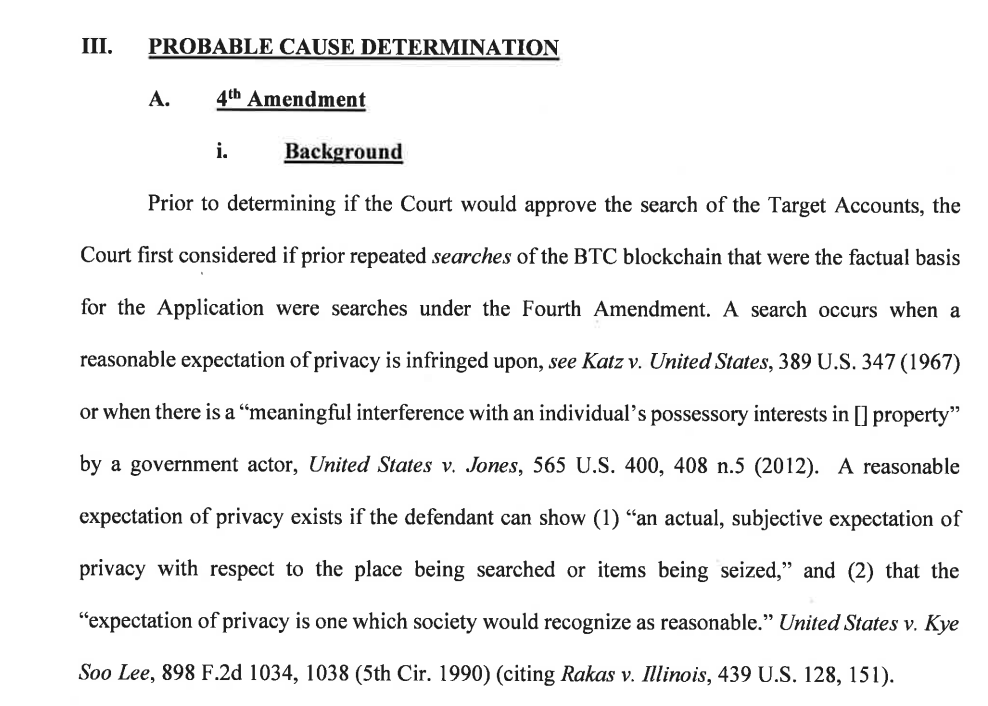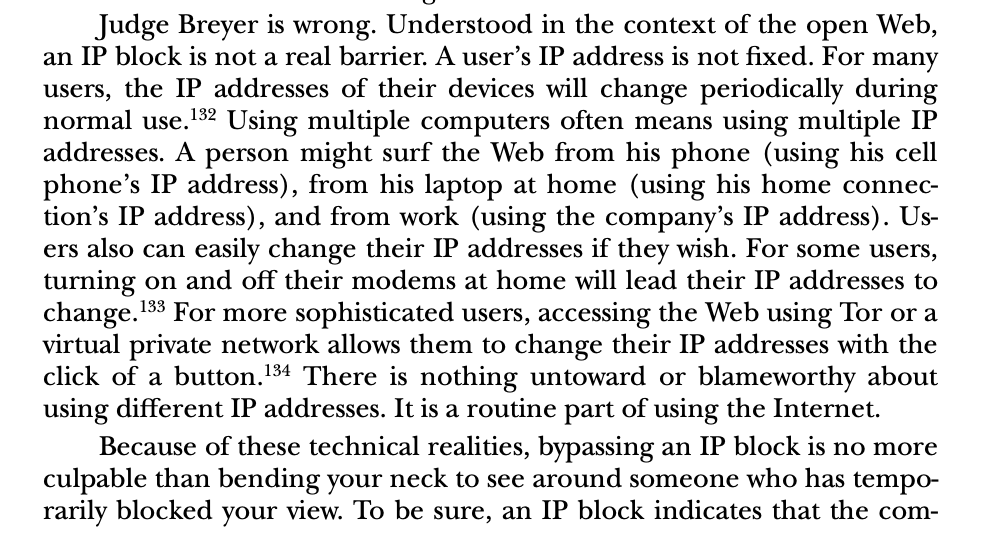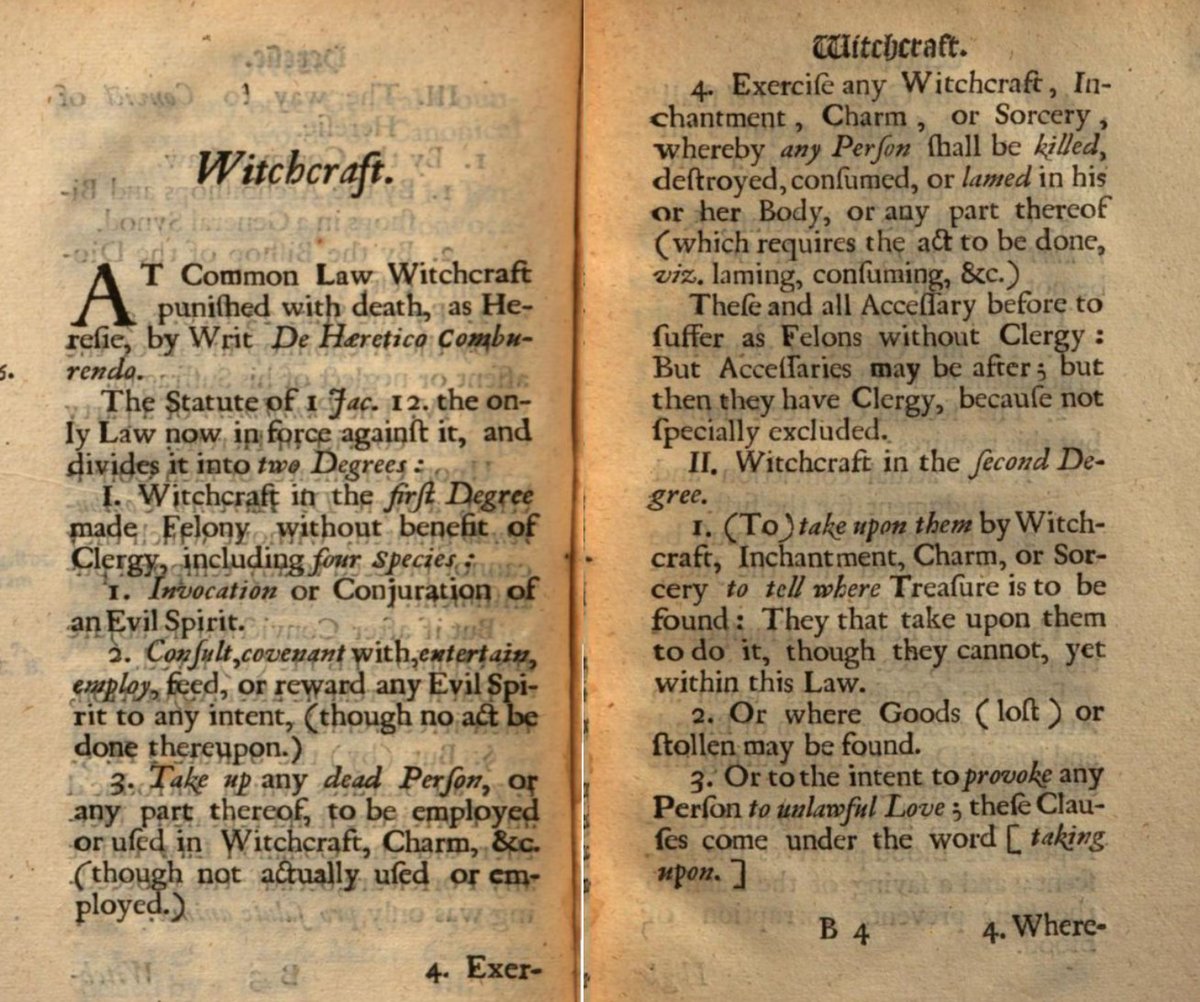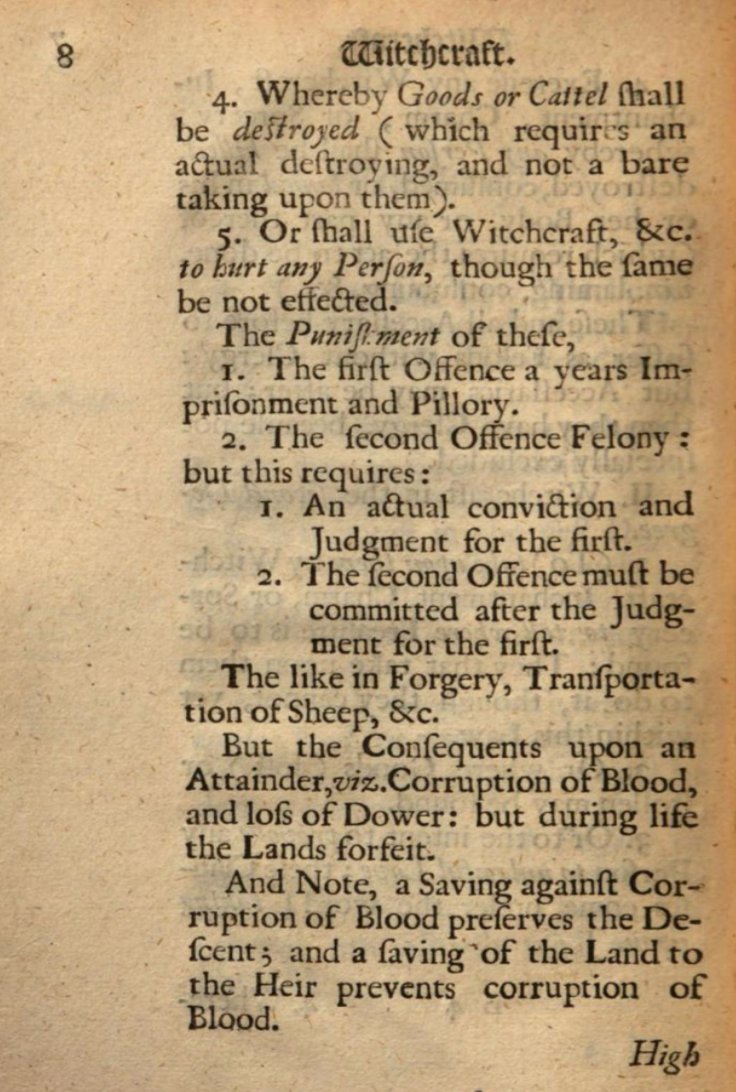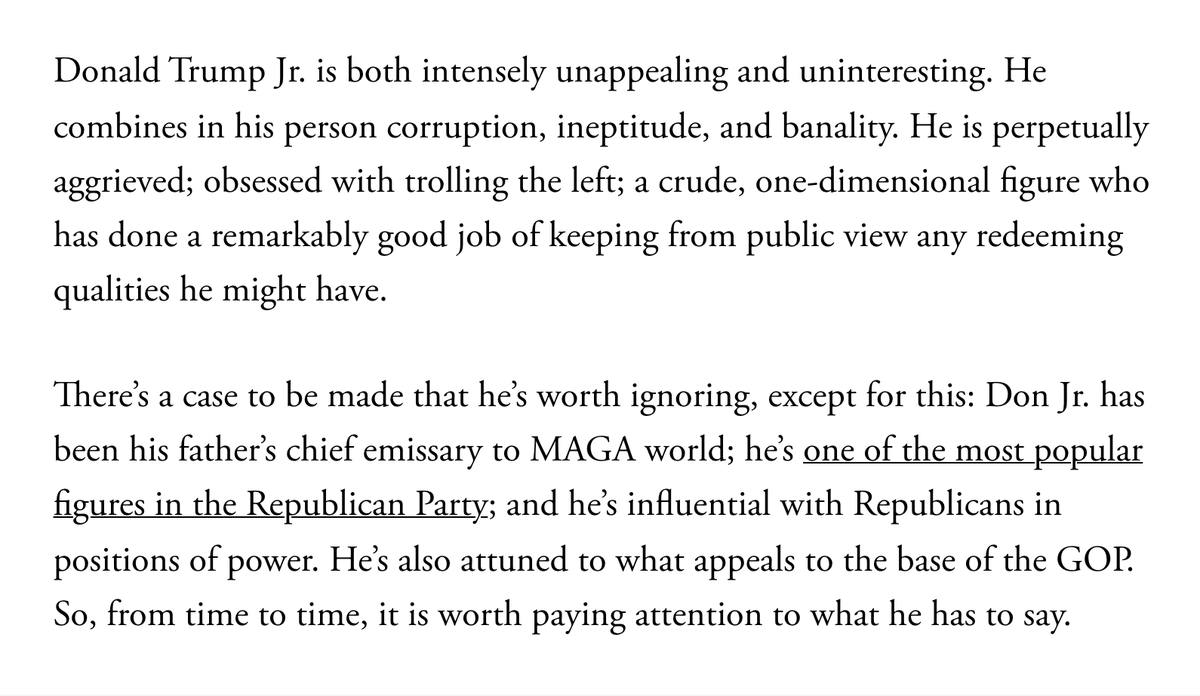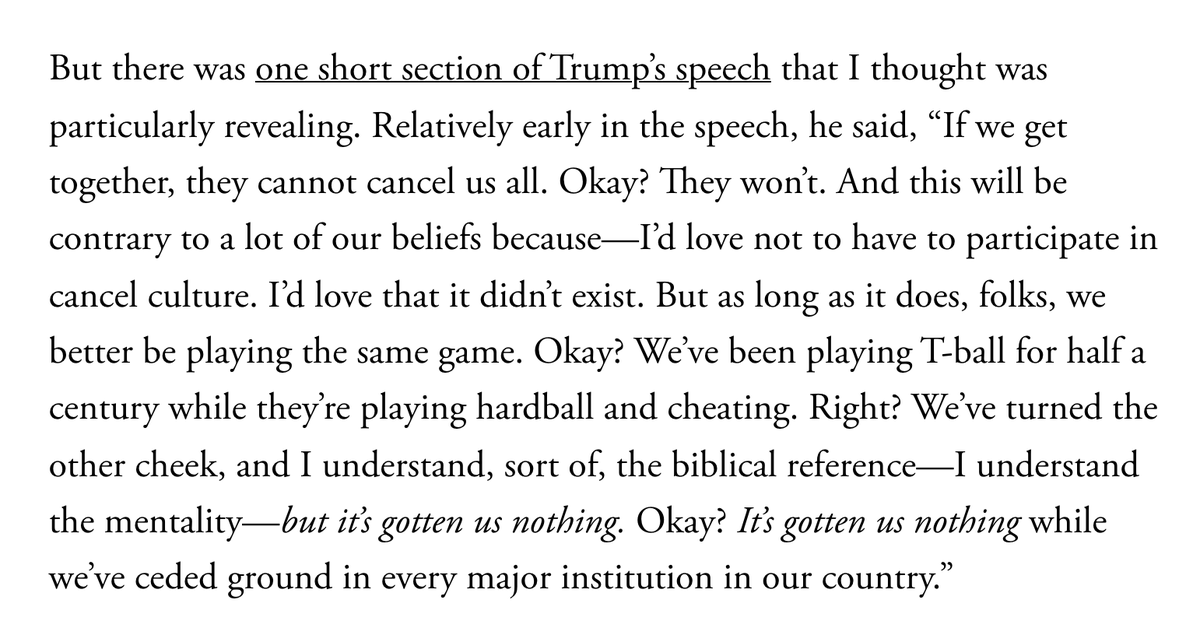
Two years ago, I had a post at Volokh on the scholarly trajectories of PhD vs. non-PhD hiring of law profs: I asked, will the entry-level market's valuation of PhDs prove justified? It occurs to me we now have data slightly relevant to that. (Thread.)
reason.com/volokh/2019/06…

reason.com/volokh/2019/06…


It would take a lot of study of a lot of people to get a good sense of the answer. And of course there are lots of ways to try to measure that, all of which have their flaws. But there's one chart that is of possible interest: Fred Shapiro's list of most cited younger scholars.
The younger scholars were ones hired at the entry-level in an age of both PhD and non-PhD hiring. So one small way to get a small insight into the trajectory question is to ask, how many on the list have PhDs and how many don't? lawreview.uchicago.edu/sites/lawrevie…
Lots of caveats to the data, of course, but here's the potentially interesting result: As far as I can tell, very few profs on the list have PhDs. Only 2 have doctorates of any kind: 1 has an SJD, 1 has an econ PhD and an SJD. 18 of 20 don't have a doctorate. 
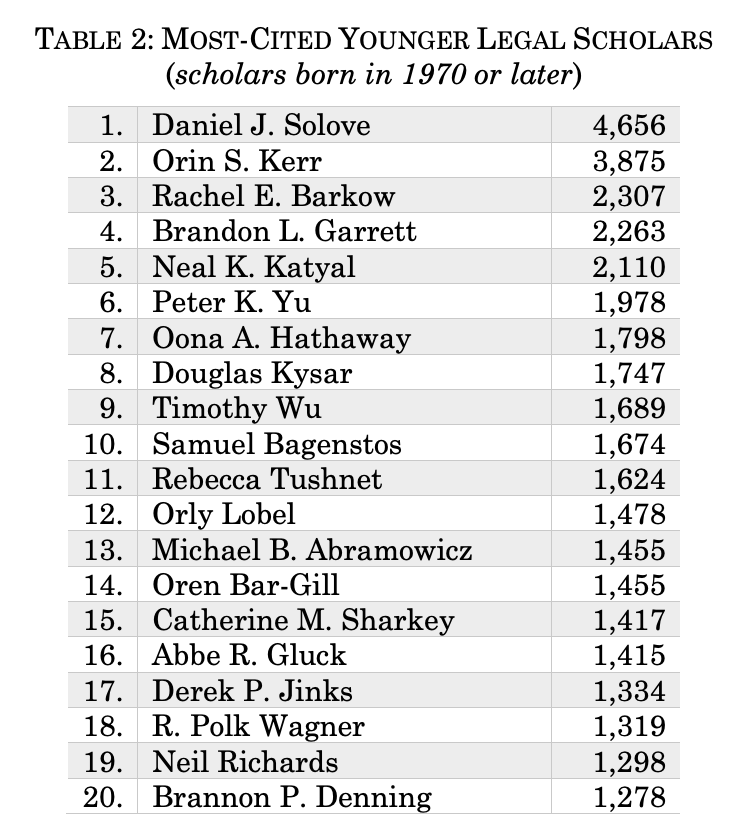
(And obviously a J.D. isn't a doctorate; it's just a renamed LL.B.) I was surprised about that, given how common Ph.D. hiring has become, as Lynn LoPucki has emphasized. jle.aals.org/cgi/viewconten… 
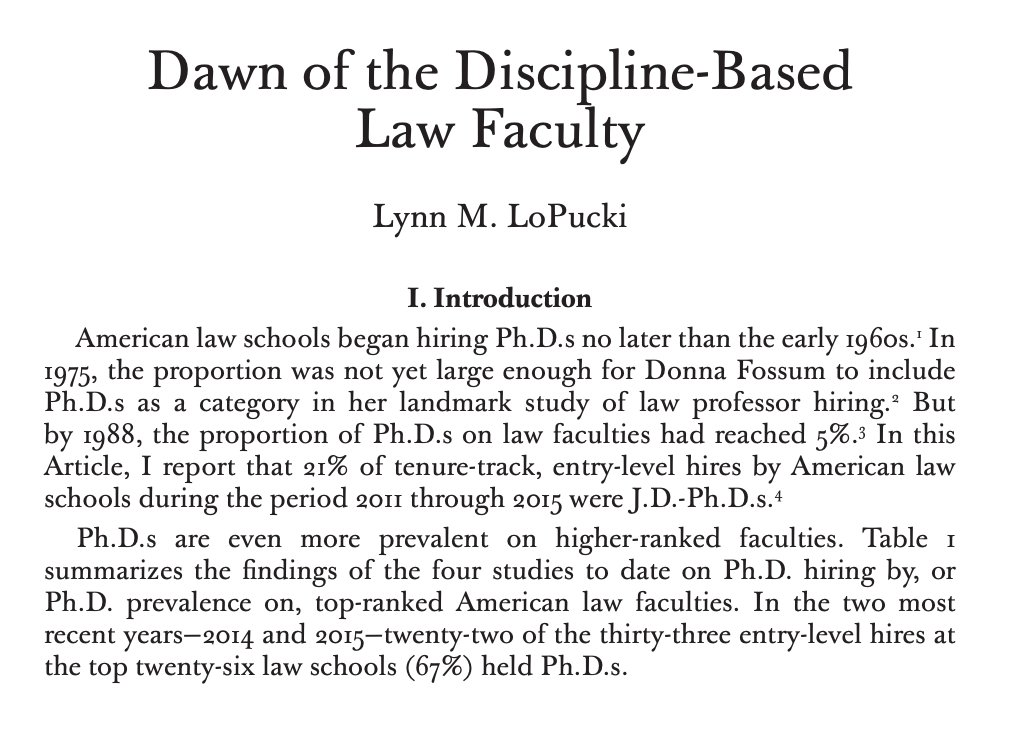
Instead, those on the list were much more likely to have what you might call "traditional" resumes, what we think of as credentials from the pre-PhD era. Lots of Yale JDs, 10 of 20 are former SCOTUS clerks, yada yada yada, etc.
Does this mean anything? Maybe it's just noise, and citation studies are so partial, and so biased, that maybe we should just ignore it completely. So it could be meaningless.
There are lots of other explanations, too.
First, those on the list tend to be people hired in the early 2000s, before the PhD trend really took off. So maybe this is still effectively a pre-PhD list.
First, those on the list tend to be people hired in the early 2000s, before the PhD trend really took off. So maybe this is still effectively a pre-PhD list.
Second, maybe the PhD trend tends to be focused in subject areas with relatively low citation numbers. If non-PhDs end up disproportionately in highly-cited fields, like con law or crim pro or tech, the results may just reflect field, not trajectory.
Third, and relatedly, maybe non-PhDs are more likely to be generalists who will tend to write for a larger audience of fellow generalists, and who will therefore end up being read and cited more by virtue of being less specialized.
Fourth, maybe PhDs are more likely to be writing for discipline-specific journals that are not as likely to be seen within law or cited within law journals? Maybe Shapiro's study is only looking at some kinds of law-focused influence, not the whole picture.
Anyway, this is such a small piece of the overall trajectory puzzle that I don't think we can read too much into it. But it struck me as mildly interesting for those of us who follow lawprof hiring closely. /end
• • •
Missing some Tweet in this thread? You can try to
force a refresh


